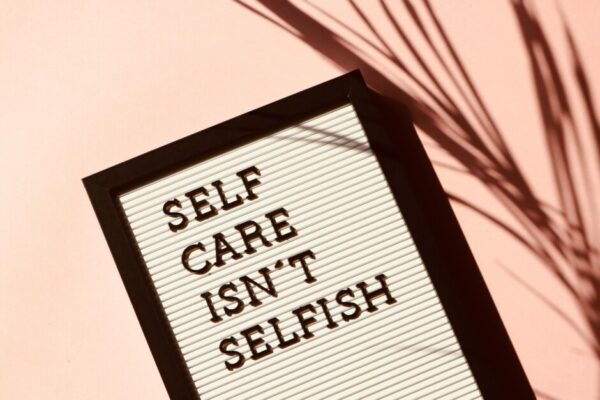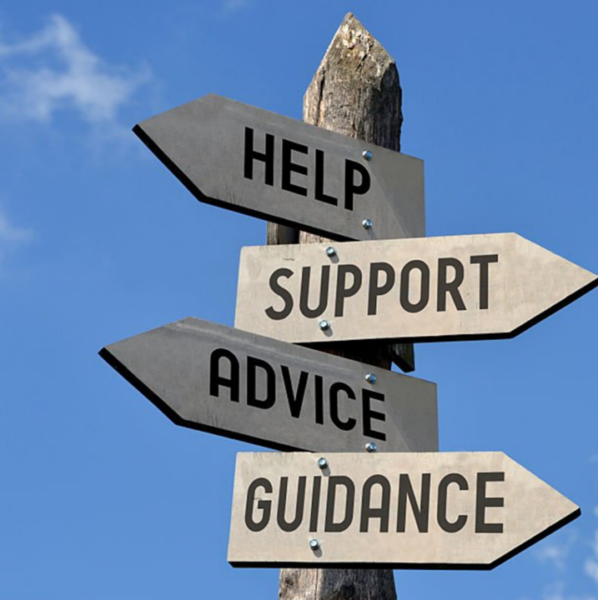Life on Life’s Terms? Easier Said Than Done in Times of Financial Turbulence
The recovery philosophy of living life on life’s terms is easier said than done in times of financial turbulence.

For the past few months, that simple, but not easy belief has included daily social, political and financial upheavals. In terms that many can relate to ‘life on life’s’ terms have felt like a 7.0 magnitude earthquake with weekly (daily) tremors and aftershocks. Those in recovery have put their recovery mettle to the test. Radical acceptance is not for the faint of heart.
Human brains crave stability, consistency, and controllable outcomes. We are wired to recognize patterns and constantly process information from the world around us. Why? To survive. From an evolutionary perspective our ability to process stimuli from the environment gave us an advantage, crucial for survival and natural selection. If we quickly identified threats, secured resources, and opportunities, we lived to survive another day.
How Our Evolutionary Brain Stirs Worry
Although our brains developed in a world different from the world of today the primitive parts of our brain are ever present and influence our behavior. We still use our pattern recognition skills, but in different ways; “Something seems off about my partner. I wonder what’s wrong?” “The price of food and other goods seems to be rising. Will my salary cover my living expenses?” “Something must be wrong with the car. It doesn’t sound right, and I think it’s making a strange sound!” And “My boss wants to have a meeting with me. Will I lose my job? Did I do something wrong?”
To be fair, there are the adrenaline seekers and risk-takers among us who ride the waves of chaos like master surfboarders glide through thundering channels of water. Thrill seekers and risk-takers thrive on uncertainty and risk.
Fun Within a Comfortable Range
Most humans want to experience thrills within their comfort range. When “thrill” spills outside that zone, our brains immediately signal threat and sends us into high alert or panic. This is when our fear and anxiety surfaces and alarm bells ring.
That need for consistency is primal and harkens back to evolution. This behavior helped us build trust which ultimately increased our chances of survival and reproduction. Fast forward to today. Few events undermine our sense of security like a frolicking stock market that is taking our money (today’s version of safety) for a harrowing ride. Thrilling for some and anxiety provoking for most. It’s times like this that Promise 10 “Fear of people and economic insecurity will leave us,” and Promise 11 “We will intuitively know how to handle situations which used to baffle us” from the big book of Alcoholics Anonymous are tough to hold onto. It’s doable; one day at a time.
“Survival” mobilizes obsessional thinking, “What happens if it rains tomorrow? Will there be traffic when I drive to the airport? I might miss the plane!” “I’m worried the refrigerator is about to break down and I’ll need to replace it.” And so on. We worry…a lot!

Which brings me back to how many of us are coping with the current social, political and financial upheavals of our time.
Pain Avoiding and Pleasure Seeking
As a therapist I specialize in trauma, addictions and financial well-being. I help individuals and couples navigate the journey from addiction to recovery as well as helping clients create healthy intimacy in relationships.
I have noticed an uptick in many clients’ levels of anxiety. Their internal emotional dis-ease is amplified by the uncertainty and chaos in the world. Understandably, the current state of upheaval has led many people to want to “numb out” with money, spending, sex, food or online internet use. Consider the following statements:
- “I am buying more ‘stuff’ online that I don’t need.”
- “I swore I wouldn’t max out my credit cards and rack up new debt. It’s freaking me out.”
- “I get on dating apps just to see who wants me.”
- “I doom scroll late into the night.”
- “I’m eating a lot, especially junk food.”
- “I’m all over my kids and telling them what they need to do. Even more than usual.”
- “I’m binge-watching episodes of my favorite series until late and night.”
- “I am working longer hours because I don’t like idle time on my hands. It’s hard for me to relax.”

While these behaviors are efforts to self-soothe and escape pain, they don’t help us create healthy coping mechanisms, certainly during times of higher stress and fear. Over time these escape behaviors can become compulsive or addictive. There are healthier ways to offload our discomfort to feel more in-control, or perhaps, less out-of-control.
Creating Healthy Habits and Coping Mechanisms
It is easy to overlook the many ways we can create calm amidst the chaos. The other day a client said to me, “I feel so out of control.” I didn’t try to talk them out of their belief because they are experiencing uncertainty and insecurity. I asked them to entertain an additional prompt. Is feeling out of control the same as being out of control? Their feelings were their truth, but the reality wasn’t true.

Mindful Breathing and Meditation
Work on limbic grounding and breathing meditations to create calm and regulate your nervous system; even brief moments are a win. Overtime practice stringing together longer moments of calm to create sustaining serenity. Achieving brief moments of calm is a noble goal.
12-Step Practice

Those who are in recovery know to lean on their recovery tools and fellowship community for support. If you need support but don’t know where to turn, the 12-Step programs of recovery are a strong resource for almost all compulsive behaviors. For example:
Financial Therapy

Financial therapy is a process that combines therapeutic and financial competencies to help people improve their relationship and well-being with money.
Recognize that the current financial turmoil may be agitating underlying financial trauma or trauma related to money. Seek out a financial therapist or other financial professionals who can provide much needed support. We don’t think clearly when we are wracked with anxiety and overwhelm. A professional can provide information and different perspectives.
I’m reluctant to end this article with a pithy saying or with one of the many AA slogans (and boy are there some good ones!), but I will: “A burden shared is a burden halved” is not only wise but vital to remember. It’s easy to fall into overwhelm or despair and forget we are not alone. Some of the best advice that I give my clients, and that I follow as well, is to reach out for support. To do so is an act of courage that builds emotional muscles and becomes easier overtime.
